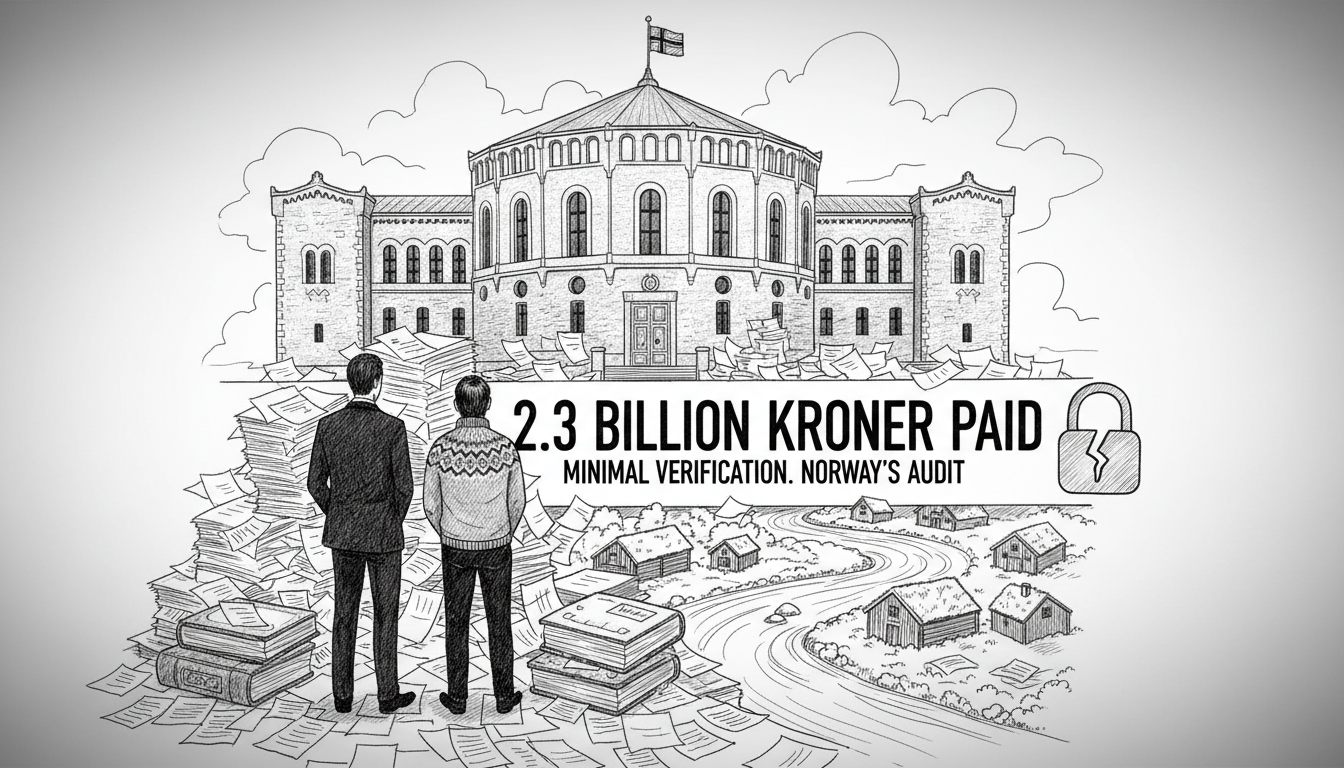Norway's National Audit Office has uncovered serious financial control failures within the country's welfare system. The agency responsible for welfare payments disbursed 2.3 billion Norwegian kroner for orthopedic aids without properly checking invoices.
Auditor General Karl Eirik Schjøtt-Pedersen stated during a press conference that the welfare administration only verified 0.6 percent of submitted invoices. This creates substantial risk for incorrect payments and potential exploitation of the system by external actors, he emphasized.
The audit examined five specific cases this year, with two receiving the label 'criticizable' and three deemed 'unsatisfactory.' The findings reveal systemic weaknesses in Norway's financial oversight mechanisms.
This is not the first time the welfare administration has faced scrutiny. Earlier this year, auditors expressed reservations about parts of the agency's accounting due to uncertainties surrounding financial reporting of benefits totaling 475 billion kroner.
Significant control weaknesses were identified in databases managing retirement pensions, disability benefits, contractual pensions, and parental benefits. These systems form the backbone of Norway's extensive welfare state, raising concerns about the integrity of benefit distributions.
The audit also criticized the Tax Administration's handling of value-added tax, one of the government's primary revenue sources. The tax authority has failed to adequately comply with economic regulations designed to prevent and detect financial crime, according to the report.
Alarmingly, the number of notification controls has been reduced by more than half since 2013, despite high risks of VAT evasion and fraud. This reduction in oversight coincides with increased complexity in financial transactions and digital payment systems.
Norway's welfare system is renowned for its comprehensive coverage but faces increasing strain from demographic changes and digital transformation. The audit findings suggest that administrative systems have not kept pace with the scale and complexity of modern benefit distributions.
Despite these specific criticisms, the annual review found that the overall quality of government accounts remains strong. 220 of 230 annual accounts received no remarks, which Schjøtt-Pedersen described as reassuring for public trust in how the state manages funds.
The Norwegian model depends heavily on public confidence in institutional integrity. When billion-krone payments escape proper verification, it undermines the social contract between citizens and their government. The audit office has called for immediate corrective actions to address these control deficiencies.
What happens when financial oversight fails to keep up with payment volumes? The Norwegian case demonstrates how even well-funded systems can develop vulnerabilities that threaten both fiscal responsibility and public trust.
Orthopedic aids include equipment designed to replace, support, or correct body parts that don't function properly for medical or cosmetic reasons. These can include prostheses, support braces, specially adapted shoes, or insoles. The substantial sums involved highlight the importance of proper verification for medical equipment reimbursements.

